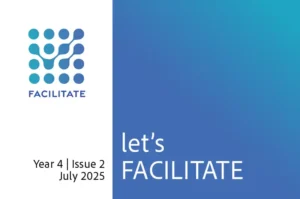Global perspectives on return of individual research results
On 23 February 2023, the development of guidelines for the return of clinical trial data has been discussed at the 14th International Congress on Human Genetics in Cape Town
The return of individual research results is fraught with ethical, legal, and social concerns, impacting patients’ autonomy and their right not to know. Currently, there is a lack of consensus on how results should be returned, and amidst this ethical uncertainty, many local biobanks, consortia, professional bodies, and industry are developing policies for returning results.
In the Session “Global perspectives on return of individual research results to participants” chaired by Prof. Dr. Johanna Blom, FACILITATE deputy coordinator, researchers discussed different perspectives on policies on the return of data to patients applied in specific contexts.
Dr. Deborah Mascalzoni presented the recent revision of the return policy of the Cooperative Health Research in South Tyrol (CHRIS) study, a healthy cohort study that explores the genetic and molecular foundation of cardiovascular, metabolic, neurological, and psychiatric diseases in the general population of the middle and upper Vinschgau/Val Venosta in South Tyrol, Italy, including what prompted the change, the process it followed, and its guiding principles.
Using examples from some genomics studies in the African context, Dr. Nchangwi Syntia Munung highlighted how communitarian ethics offer an alternative approach to the development of practical guidelines and frameworks for the return of results in genetic research in Africa.
Dr. Calvin Ho discussed the ethical framework on return of research findings to participants in the Hong Kong Genome Project (HKGP), which is an initiative introduced by the government of Hong Kong to drive the local development of genomic medicine for more personalized healthcare and disease surveillance. Apart from the ethical framework, Dr Ho also highlighted some of the social and practical challenges, as well as measures that have been applied to enhance engagement and benefit sharing.
Finally, Dr. Ciara Staunton introduced the FACILITATE ethical framework and the role of patients, industry, researchers, and other stakeholders in developing it.



